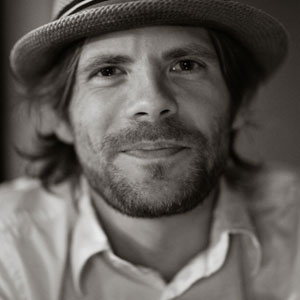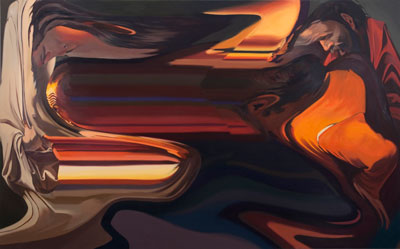


"The starting point of these reflections was usually a feeling of impatience at the sight of the Ďnaturalnessí with which newspapers, art and common sense constantly dress up a reality which, even though it is the one we live in, is undoubtedly determined by history. In short, in the account given of our contemporary circumstances, I resented seeing Nature and History confused at every turn, and I wanted to track down, in the decorative display of what-goes-without-saying, the ideological abuse which, in my view, is hidden there."
-Roland Barthes, Preface to Mythologies
Like Barthes, the starting point of my work began with a feeling of impatience at the prevailing critical discourse surrounding the history of contemporary painting. While much is often inferred, theorized and proclaimed on the artistís behalf, the artists themselves are usually relegated to a very small and marginalized position of authority. While this discourse presents to us a history of its own making, rarely does it acknowledge a very basic component to the process by which all history is composed: Politics; who is included, who is excluded and for what political reasons.
My work is a type of political realism, an anti-ideological signifier that reveals the distortions of ideology and its coding into representation. Politicians, with their framing of issues into narratives, make for the most obvious subjects and similarly, European Paintingís historically cozy relationship with imperial and institutional power once spun for us a canon that proclaimed western culture supreme. Yet, in a society where the average person is subjected to 5,000 advertisements per day and even the news contains empirical bias, there is little left to even everyday life that does not come pre-packaged and distorted, with a point of view and an agenda.
Drawing from a process developed as a professional digital modeler, my work begins on the computer. I begin with images or portraits of political interest and manipulate them with various software into compositions that are formally interesting and challenging. From there, I project the images onto canvases built to a scale that will have a desired physical presence to the viewer, while the paintings themselves develop through a hybrid process, relying on the photo-realistís armature of the image and an abstract expressionistís sense of movement through color. In the end, I believe it is my deep love for these formal intricacies of both figurative and abstract painting that best define the experience of my work.

Evan DeSpelder was born in Northern Michigan and spent the majority of his childhood in snowpants. The world around him was cold, but very lovely and everyone knew what was what. The good guys were us, the bad guys were them and everyone else chose sides. From time to time, his mother would throw her shoes at the television, especially whenever the President spoke, but most of the time he ignored it, preferring to spend his time drawing, copying cartoons out of the Sunday paper.
Then Evan went to college in Ann Arbor and everyone told him that the bad guys were us, the good guys were them, and it was just the System that was holding us all back. "Fuck the system!" he would shout. From time to time, he would throw his shoes at the television whenever the President spoke, but he spent the majority of his time designing potato peelers and wishing he could just be a painter.
Then Evan moved to Orange County where everyone wore "God Bless The System" t-shirts and had "W" bumper stickers. Evan was very lonely there, but he worked hard at his job at the computer and learned a few things about the way people see each other. Now he lives in San Francisco and makes paintings about the world around him. He doesnít have to design potato peelers anymore.